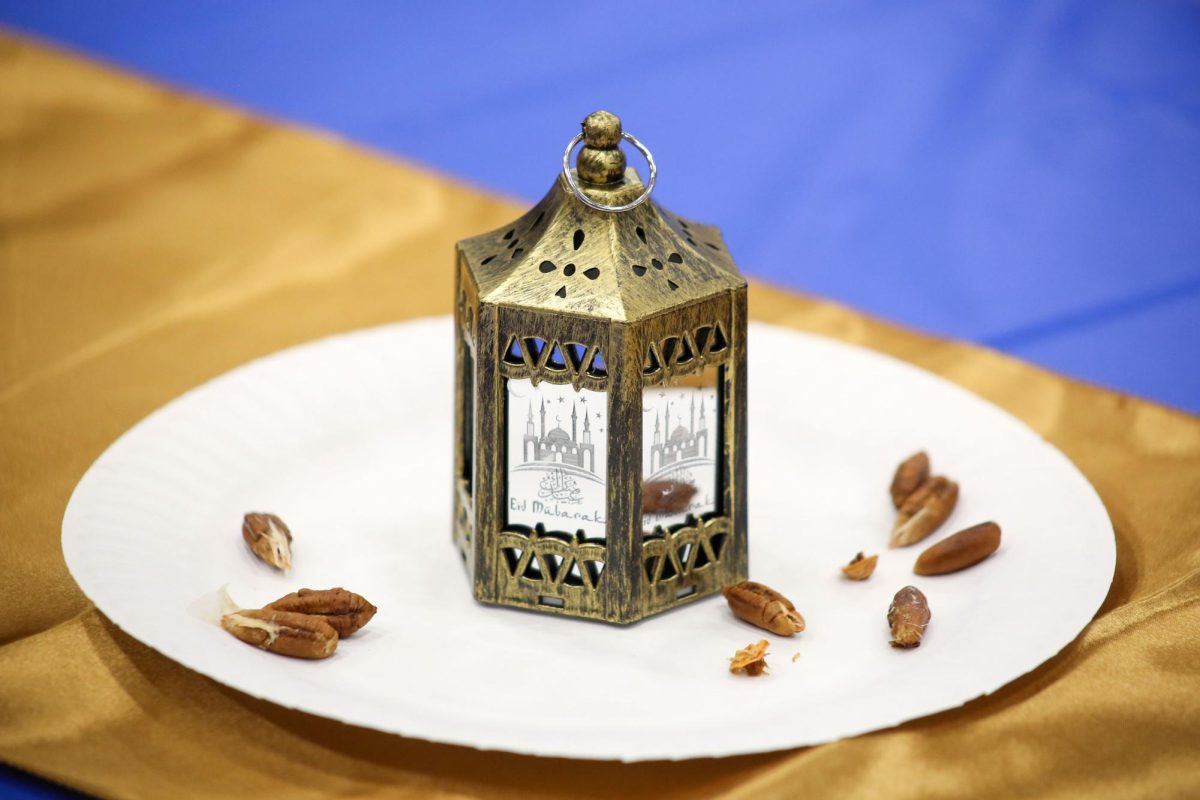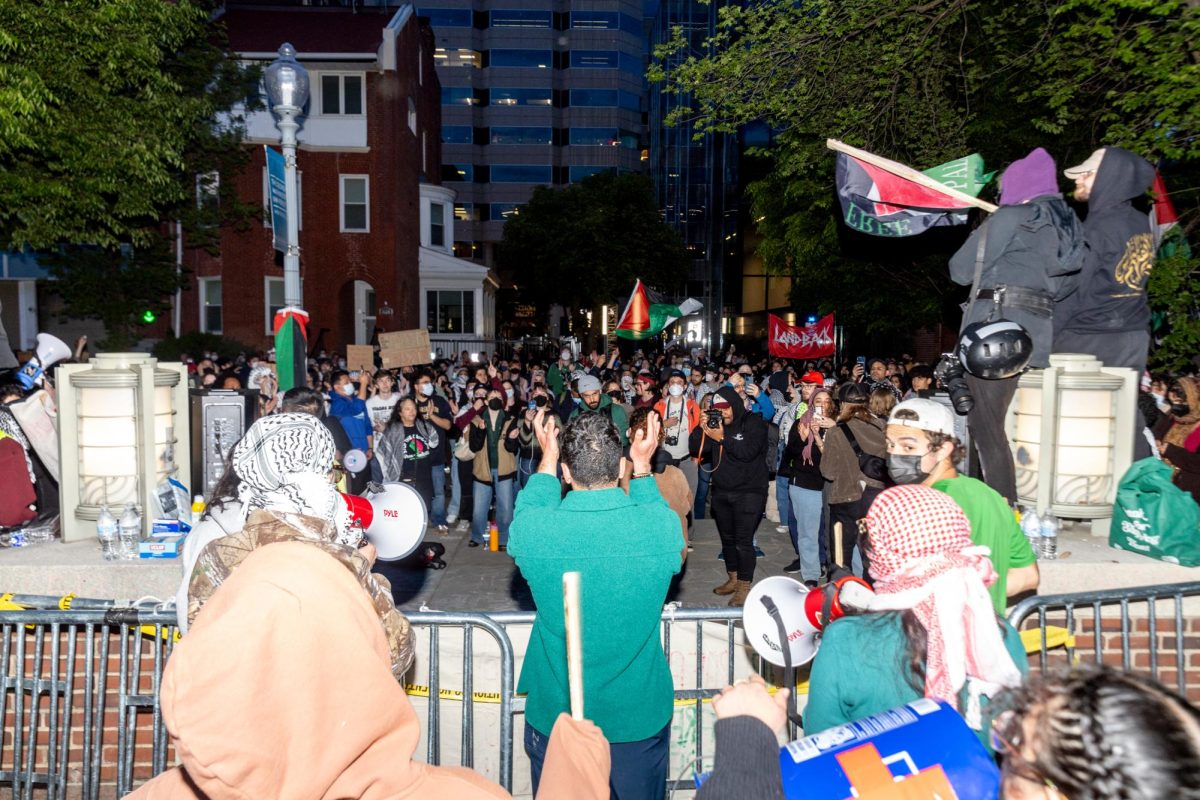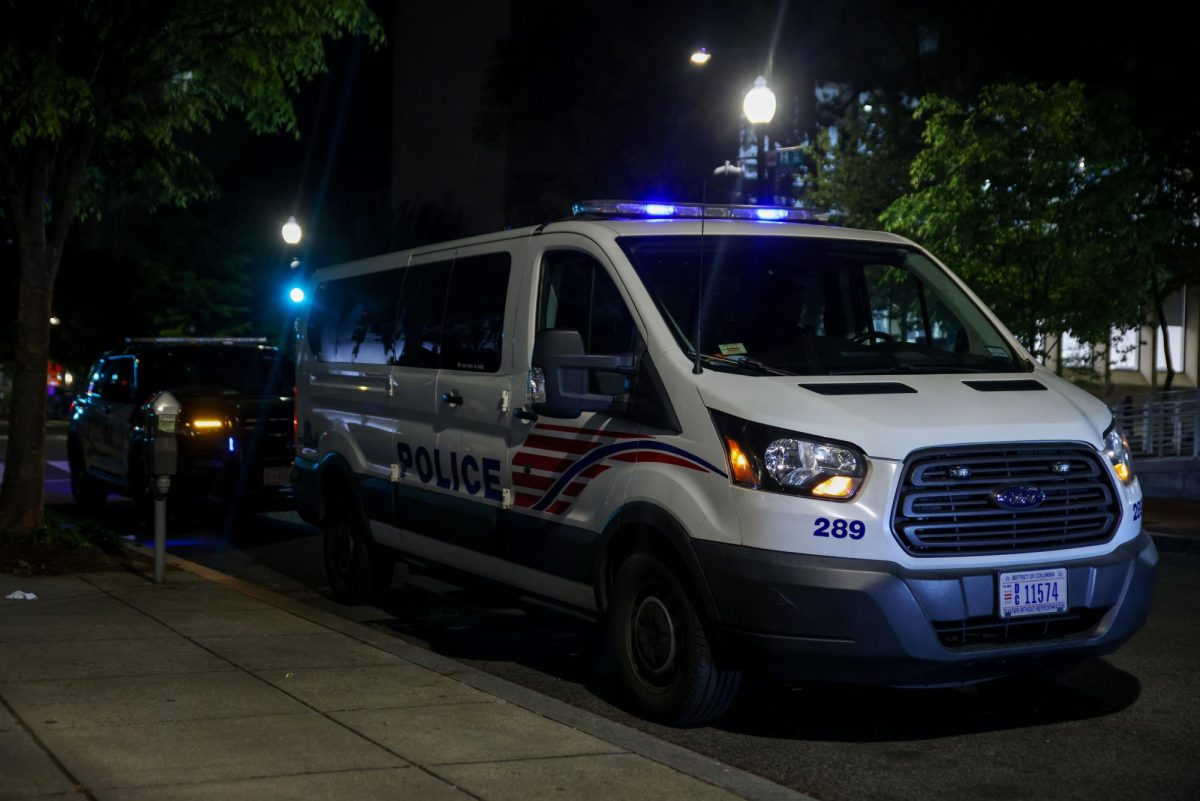The Muslim Students Association will expand its programming this month in observance of Ramadan with a charity gala, iftars and a temporary student prayer room.
The MSA will host iftars, the meals Muslim people eat each evening to break their fast during Ramadan, and a charity gala to raise money for various issues affecting the global Muslim community. Senior Raheel Abubakar, the president of the MSA, said the organization wanted to focus on more religious-based programming for this year’s Ramadan compared to past years’ focus on the month’s overall significance.
“One of the most important parts of Ramadan outside of fasting is also becoming more close to your faith,” Abubakar said.
Officials have been renovating the musalla, or place of prayer, on the fourth floor of the University Student Center prior to the start of the semester, which students say will modernize the space after years of use wore down the room’s carpet. Abubakar said continuous order delays for items like prayer mats and decorations prompted him to reach out to Cassandra Lammers, the director of the student center, about possible meeting space accommodations for Taraweeh prayers — which occur during Ramadan after Isha, the evening prayer — because of the musalla’s small space and ongoing renovations.
Abubakar said Lammers helped organize a meeting with himself and officials in the Multicultural Student Services Center, the Division for Student Affairs, the student center, and the Student Government Association earlier this month. They designated room 433 as a temporary musalla for students to pray during Ramadan because of its large space.
Abubakar said MSA board members have added mats and furniture and dimmed the lighting to soften the atmosphere.
“I have heard very positive feedback from the community, which is very nice,” Abubakar said. “I think a lot of people like that we finally have more room. They like the ambiance in the room, they think it’s comfortable, and I think that it’s been generally well-received.”
Abubakar said the organization will host a charity gala April 4 in the City View Room inside the Elliott School of International Affairs to fundraise for issues like the civil conflict in Sudan; earthquakes in Afghanistan; the humanitarian crisis in Gaza; and the repression of Uyghurs in China and Rohingya people in Myanmar.
“There’s a lot of places where we want to help the community around the world,” Abubakar said. “One of the pillars of Islam is something called Zakat, which is charity, giving back. I think it’s important for us to try and encourage that during this month.”
Abubakar said the MSA will continue co-sponsoring iftars with other student organizations throughout Ramadan with different regional themes, including “A Night in the Middle East” with the Arab Students Association and Students for Justice in Palestine on Thursday and “A Night in Africa” with the African Student Association and Ethiopian-Eritrean Students Association on Sunday.
“Islam is such a wonderful faith that there is so much information about it that there’s always more to learn,” Abubakar said. “Learning it and constantly learning more about it is part of the faith. Always expanding and trying to incorporate more of the faith in your life is a part of being a Muslim, and we want to make sure that if our organization is about making being a Muslim easier on campus, that involves education.”
African Student Association President Deseree Chacha said the group is partnering with the MSA for an iftar on March 31, which will have food from multiple African countries. She said her organization suggested African restaurants like Koite Grill and Wow Chops as catering options for the event, and the MSA is in the process of confirming the selections are halal.
“This is just a great way to show that there is collaboration, there is connection between both MSA and ASA,” Chacha said. “These organizations aren’t exclusive but we’re able to cross-connect and make sure that everyone is feeling included especially during this super cultural and religious month.”
Chacha said the African Student Association will hold its annual “Taste of Africa” event March 30, a day of performances and activities, including an iftar since this is the third year in a row the event has fallen during the month of Ramadan.
“We make an announcement and encourage all of our guests who are observing Ramadan to go ahead and make their way to the Ramadan reserved room, and that’s where they can go and break their fast,” Chacha said.
Sravani Mannava, a first-year representative for the Hindu Students Association, said their organization’s co-sponsorship with the MSA for Ramadan programming consists mainly of donating any leftover food they have from an event Saturday to an iftar March 31. She added that the group wanted to help support the MSA because the South Asian community at GW is “pretty tight-knit.”
“We want to bring a home away from home element to it and be supportive,” Mannava said. “That’s a very important value to the Hindu Students Association. This is why we host events like Diwali and Holi. We want to give people the atmosphere of being at home when they’re not actually at home and we want to provide that community, and that’s exactly what we want to do for the Muslim Student Association as well.”
Naifa Alhathal, the graduate representative for the Arab Student Association, said their organization will be providing traditional Arab desserts including knafeh and baklava for the iftar. She added that the iftars reflect the cultural variety within the Muslim community.
“Usually people use Arab and Muslim interchangeably, not knowing that most Muslims are not Arabs and not all Arabs are Muslim,” Alhathal said. “I feel like their collaboration with other cultural organizations like the South Asian cultural organizations, tell others or people who are not very familiar with the Muslim community, the diversity within the community.”





